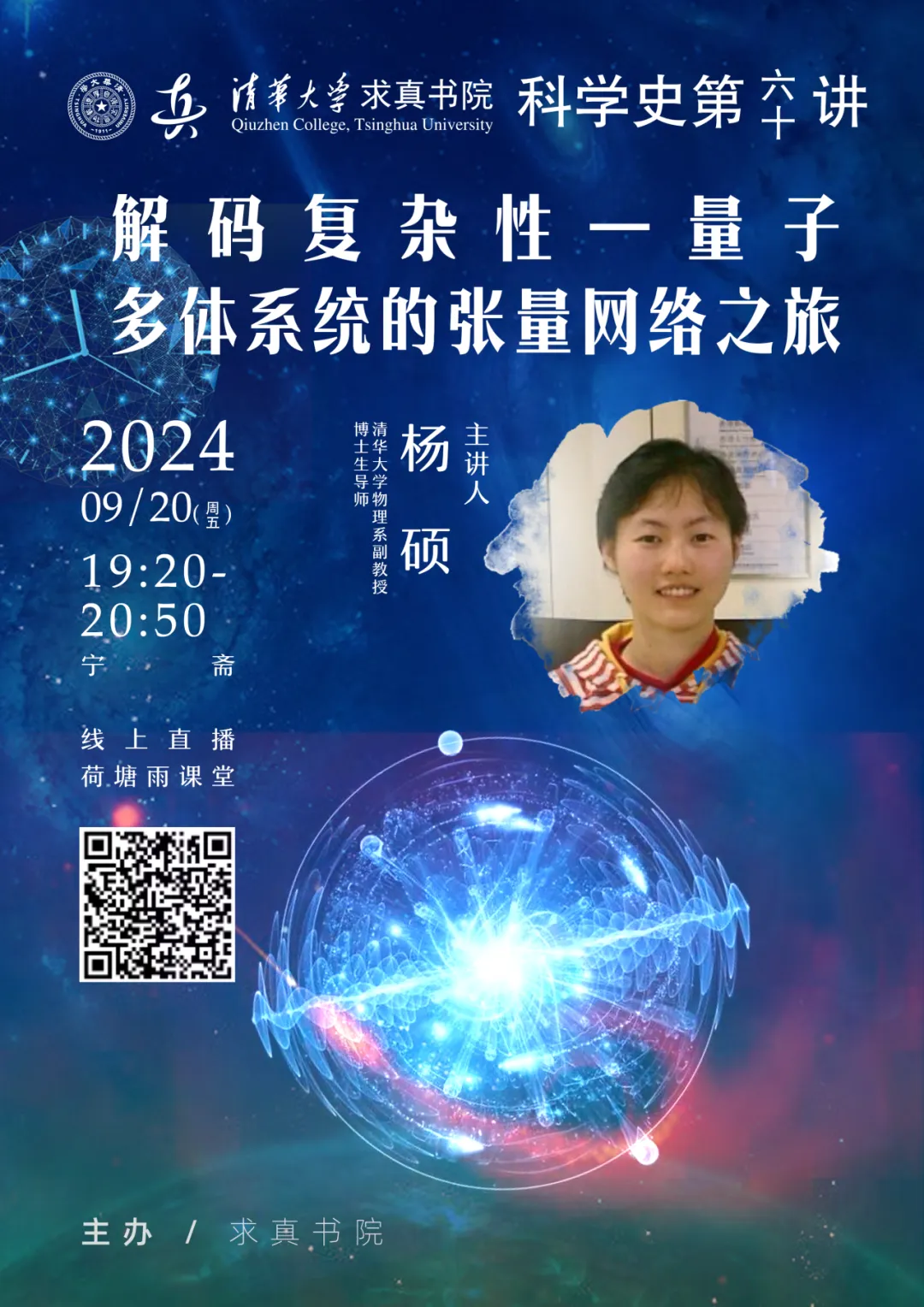
解码复杂性-量子多体系统的张量网络之旅
主讲人:杨硕
时间:9月20日 19:20~20:50
地点:宁斋
摘要
Tensor networks are a powerful mathematical framework used to study complex quantum many-body systems and large datasets. The concept of tensors as multi-dimensional arrays emerged in the 19th century. In the 1970s, Roger Penrose introduced tensor network diagrams, providing a visual representation of tensor contractions.
At the beginning of this century, the introduction of Matrix Product States (MPS) and Projected Entangled Pair States (PEPS) accelerated the modern development of tensor networks. These advancements extended tensor networks to higher dimensions while retaining their useful mathematical properties. Currently, tensor networks not only enable efficient numerical simulations of strongly correlated quantum many-body systems but also describe the key entanglement structures and correlation properties within these systems.
This lecture will cover the history and latest advancements in tensor networks, demonstrating how they have become a powerful language and tool for studying quantum many-body systems. Tensor networks are becoming an important field in theoretical physics, playing a crucial role in research areas such as condensed matter physics, quantum information, machine learning, and quantum gravity.
主讲人 杨硕

清华大学物理系副教授,博士生导师。2006年本科毕业于南开大学,2010年博士毕业于中国科学院理论物理研究所。2010年至2017年先后在美国马里兰大学帕克分校、德国马克斯普朗克量子光学研究所、加拿大圆周理论物理研究所做博士后研究。2017年9月加入清华大学物理系,2019年晋升为副教授。主要从事凝聚态理论和量子物理方面的研究工作,主要研究方向包括张量网络、拓扑量子态、凝聚态与量子信息的交叉。












